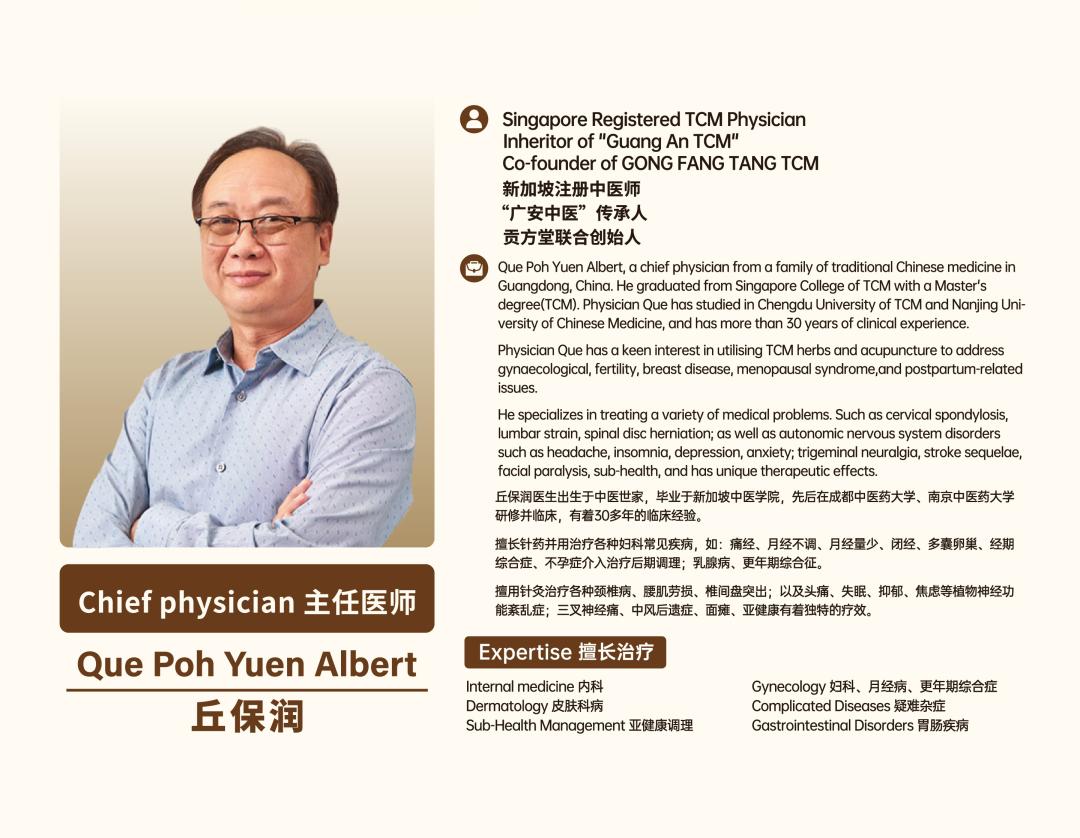- Physicians
- Clinics
- TCM
- Western GP
-
Fees
-
Deals & Privileges
- About & Resources
- Contact Us
Is early menstruation a sign of ovarian decline?
For a simple self-assessment, observe your menstrual cycle. If you consistently experience "three reductions" over a period of time and frequently feel fatigued, you should take this signal seriously!
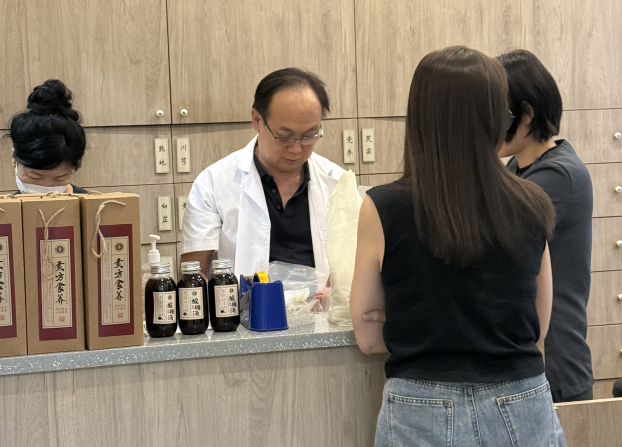
What are the symptoms of premature ovarian failure?
If you consistently experience a shortened menstrual cycle (early periods), reduced menstrual flow, and shorter duration of menstruation (fewer days of bleeding) over a period of time, these "three reductions" serve as a clear warning sign.
Dr. Que Poh Yuen Albert, a TCM gynecology expert at Singapore's Gong Fang Tang, explains that a woman's ovaries release approximately 400–500 eggs in her lifetime. The average age of menopause for Chinese women is around 49. While the exact timing varies from person to person, menopause occurring between 45 and 55 years old is generally considered normal.
However, some women under 40 may experience irregular periods, scanty menstruation, missed periods, or even amenorrhea (absence of menstruation). Upon examination, they may be diagnosed with ovarian dysfunction—ranging from diminished ovarian reserve to premature ovarian failure.
Not all menstrual irregularities indicate premature ovarian failure! A confirmed diagnosis requires the following criteria:
Occurring before the age of 40
Absence of menstruation for ≥4–6 months
Two FSH (follicle-stimulating hormone) tests (taken at least 4 weeks apart) showing levels >40 U/L
Accompanied by low estrogen levels and menopausal symptoms
Premature ovarian failure is not necessarily irreversible. With timely intervention after diagnosis, it is possible to restore normal menstrual cycles and even fertility.
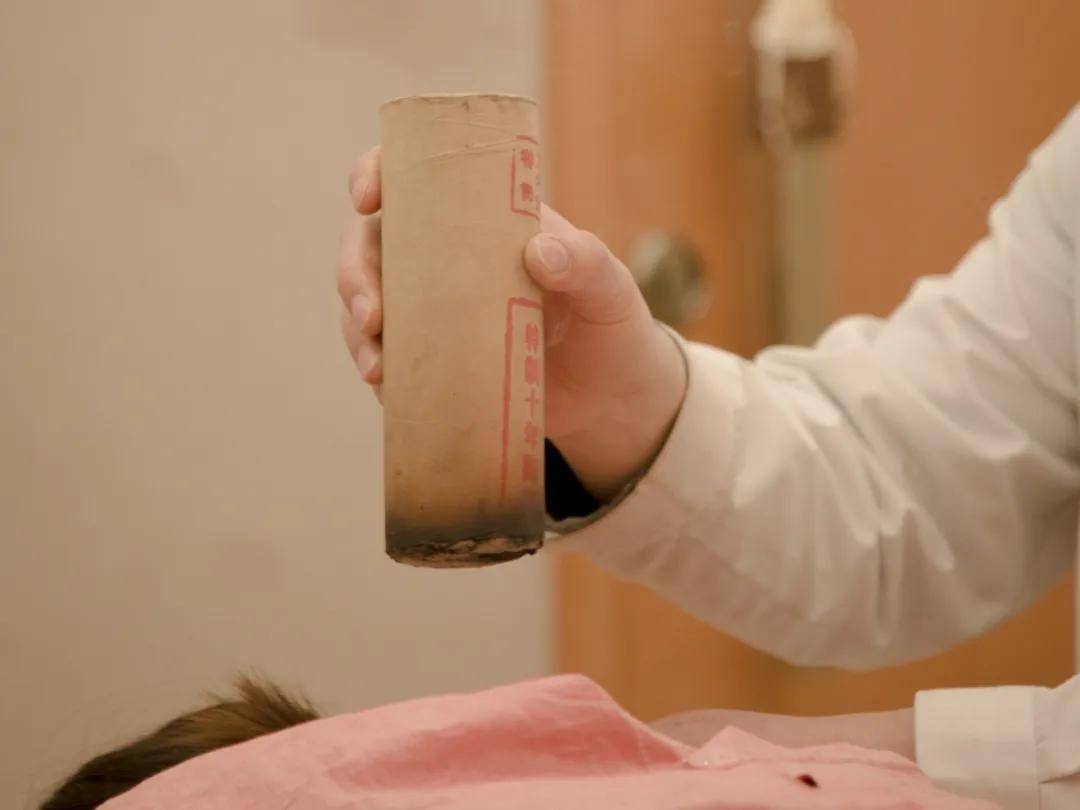
In Traditional Chinese Medicine (TCM), premature ovarian failure is closely related to kidney deficiency and insufficient qi and blood.
Kidney qi is the foundation of human growth, development, and reproductive function. Deficiency in kidney qi can lead to premature ovarian failure. Insufficient qi and blood is another common cause, as poor circulation of qi and blood can impair normal ovarian function.
Therefore, TCM treatment for premature ovarian failure primarily focuses on tonifying the kidneys and replenishing qi, regulating the Chong and Ren meridians, and nourishing qi and blood.
Kidney-tonifying herbs: These can stimulate the reproductive function of the kidneys, providing the driving force for ovarian function recovery.
Liver-soothing and depression-relieving herbs: These help promote smoother circulation of qi and blood.
Spleen-strengthening and stomach-harmonizing herbs: These aid in the production of qi and blood, providing the material basis for ovarian function recovery.
Only when qi and blood are sufficient and circulating smoothly can the ovaries be properly nourished, facilitating their functional recovery.
In addition to oral herbal medicine, auxiliary TCM external therapies such as acupuncture, umbilical therapy, and cupping can also be used.
There is a "Golden Ovary Formula" that can significantly improve the condition of premature ovarian failure.
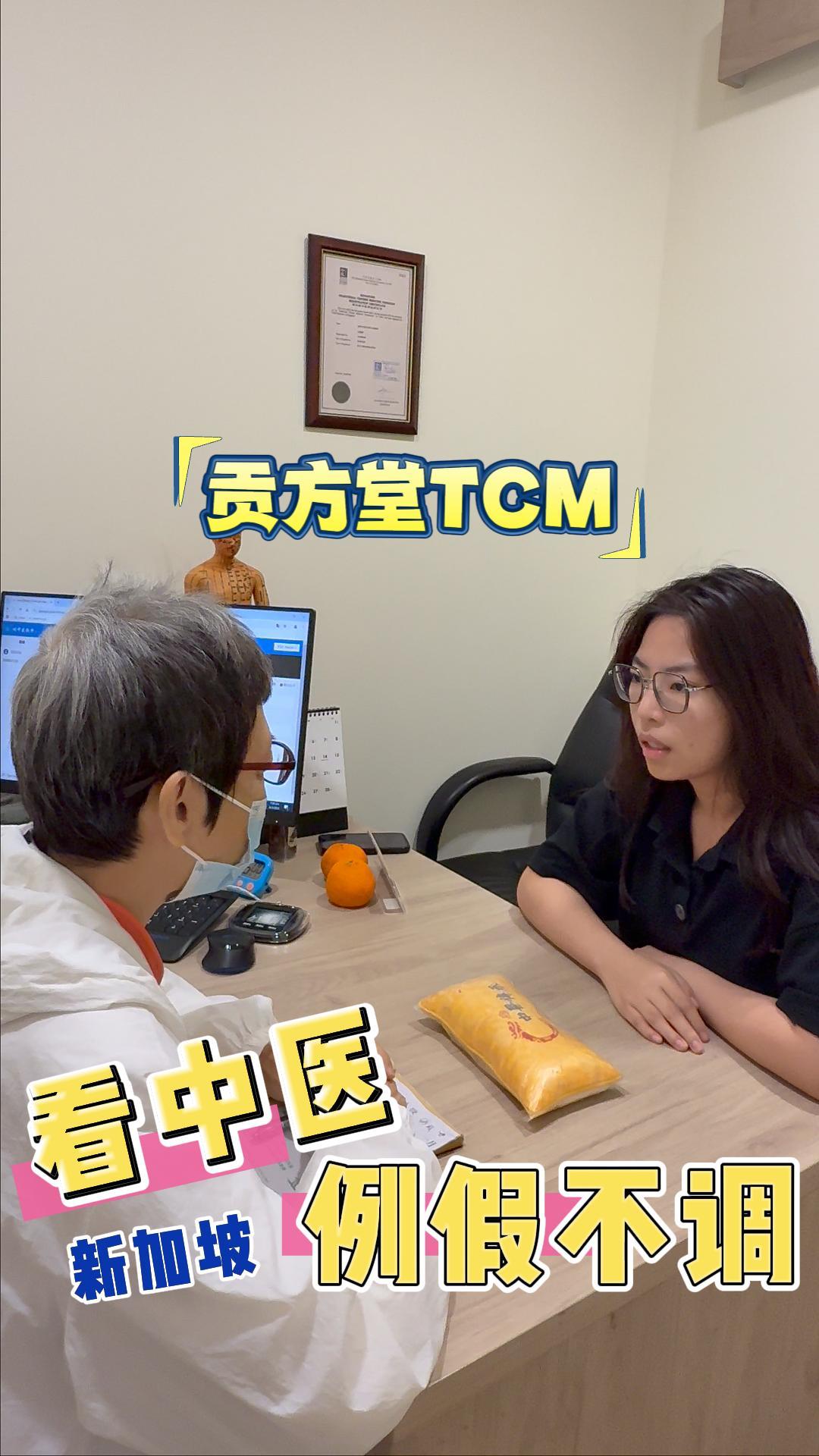
Explanation of the Formula
The formula includes:
Anemarrhena rhizome (Zhimu) and cork tree bark (Huangbai) to clear heat and reduce fire;
Rehmannia root (Shengdi), tortoise plastron (Guiban), and turtle shell (Biejia) to nourish yin and cool the blood;
Ligustrum fruit (Nüzhenzi), epimedium (Yinyanghuo), and psoralea fruit (Buguzhi) to tonify the kidneys and replenish essence;
Red peony root (Chishao), peach kernel (Taoren), and Chinese angelica (Danggui) to activate blood circulation and resolve stasis.
Additional Adjustments:
If experiencing fatigue, Pseudostellaria root (Taizishen) can be added to replenish qi.
If feeling irritable or prone to anger, moutan bark (Mudanpi) and gardenia fruit (Zhizi, stir-fried) can be included to clear heat and relieve liver stagnation.
This formula as a whole works to nourish yin, reduce fire, tonify the kidneys, and activate blood circulation. It is effective for both premature ovarian failure and poor ovarian response syndrome.
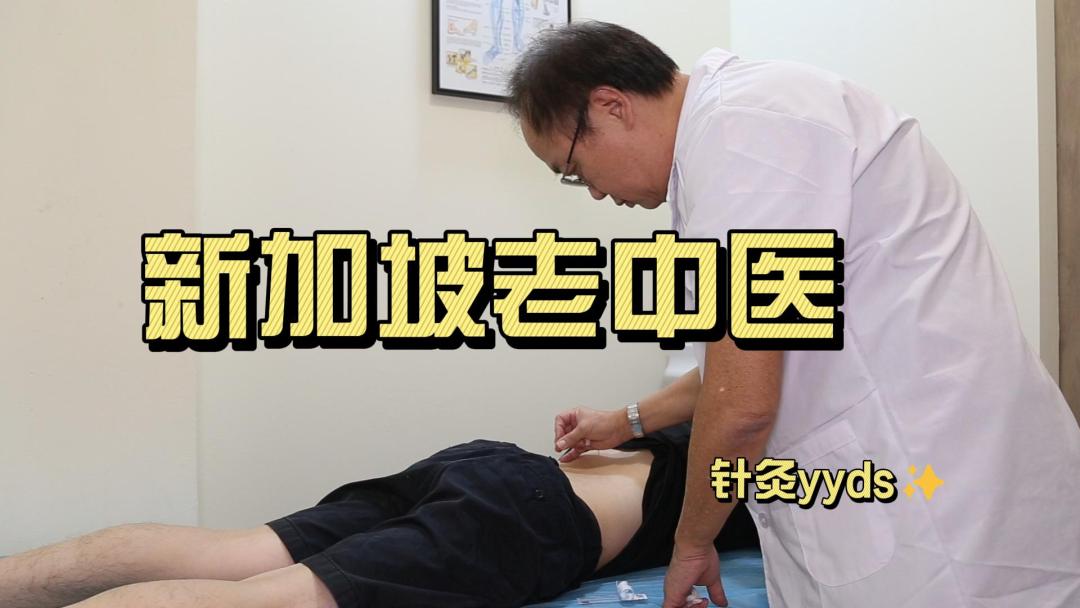
Medical Case Report
Patient: Ms. Hu, female, 40 years old.
Chief Complaint: Missed periods for 3 months, accompanied by irritability and insomnia. The patient usually experiences poor sleep, irregular menstrual cycles, reduced menstrual flow, lower back soreness during menstruation, and mild abdominal distension and pain.
Current Symptoms:
Recent irritability and insomnia
Easily fatigued
Hair loss
No menstruation for 3 months
Lower back soreness
Dry mouth
Lean physique
Normal appetite
Nocturia once per night
Has given birth to two children
Hormonal tests: Low estradiol and progesterone levels
Pale complexion with pigmentation spots
Pulse: Short, slippery, slow, and weak
Tongue: Red tip with white, greasy coating
TCM Diagnosis: Irregular menstruation
Pattern Differentiation: Deficiency of both qi and blood, insufficiency of liver and kidney.
Prescription: Modified Guipi Tang (Restore the Spleen Decoction)
Astragalus root (Huangqi) 30g
White atractylodes rhizome (Baizhu) 15g
Codonopsis root (Dangshen) 15g
Chinese angelica (Danggui) 10g
Polygala root (Yuanzhi) 10g
Spine date seed (Suanzaoren) 10g
Poria with hostwood (Fushen) 20g
Motherwort herb (Yimucao) 15g
Honey-fried licorice (Zhigancao) 6g
Moutan bark (Mudanpi) 10g
Black soybean (Heidou) 30g
Rehmannia root (Shengdi) 15g
Cuscuta seed (Tusizi) 15g
Cork tree bark (Huangbai) 10g
Amomum fruit (Sharen) 6g
Peach kernel (Taoren) 15g
Second Consultation:
Feedback: Lower back pain improved, nocturia resolved.
Observation: Complexion slightly rosier, better sleep, breast distension and mild lower abdominal fullness.
Menstrual signs: Indications of impending menstruation.
Pulse: Slow, slippery, and stronger.
Revised Prescription: Clinically experienced self-formulated formula
Ligustrum fruit (Nüzhenzi) 30g
Cuscuta seed (Tusizi) 15g
Spatholobus stem (Jixueteng) 15g
Chinese angelica (Danggui) 10g
Prepared rehmannia root (Shudi) 30g
Cyperus rhizome (Xiangfu) 15g
Bupleurum root (Chaihu) 10g
Motherwort herb (Yimucao) 15g
White peony root (Baishao) 10g
Turmeric root tuber (Yujin) 15g
Amomum fruit (Sharen) 10g
Dipsacus root (Xuduan) 15g
Outcome:
On the 3rd day of taking the revised formula, menstruation resumed with small blood clots.
Mild lower back soreness remained.
Facial pigmentation lightened.
Sleep quality improved.
